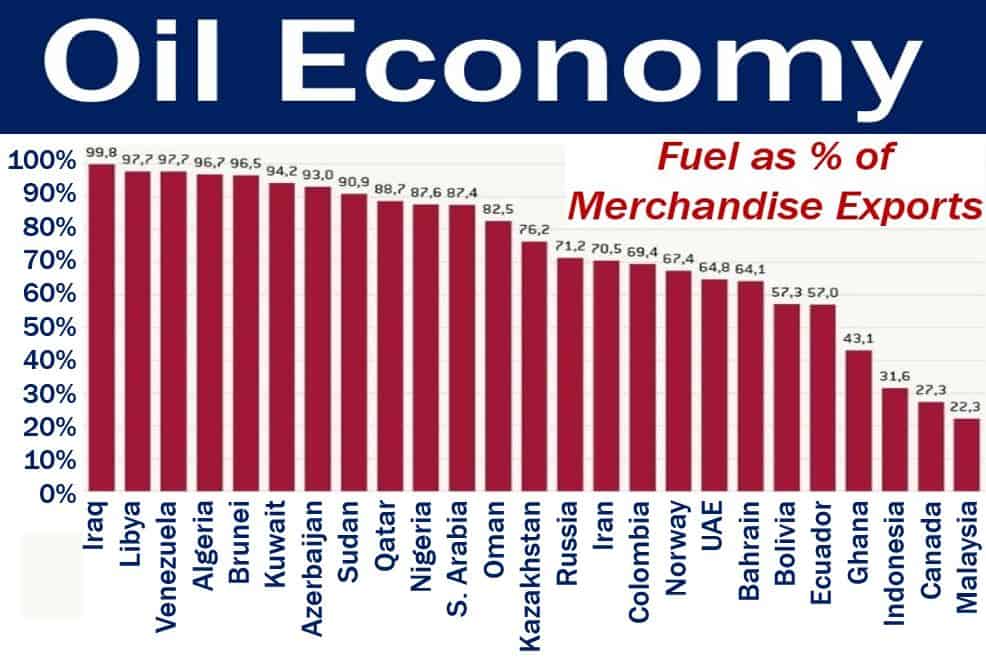The term oil economy has several different meanings. A country in which oil revenues fund a significant proportion of the economy is an oil economy. ‘Oil economy’ may also refer to one that relies on oil for its energy requirements, as well as transportation.
Most of us live in an oil economy. If all petroleum products disappeared tomorrow, the global economy would collapse.
The term may also refer to a portion of the overall economy. Specifically, that portion that is connected to the production, refinement, and sale of petroleum. In other words, the oil sector, oil industry, petroleum sector, or petroleum industry.
We need oil for the production and transportation of many goods in the economy. Consumers use oil for their vehicles and to heat their homes and offices.
Consequently, anything that affects the petroleum industry has a significant impact on many other areas of the economy.
Oil economy – whole countries
Saudi Arabia is an oil economy. The oil sector accounts for approximately forty-five percent of the country’s GDP. GDP stands for Gross Domestic Product. Nearly ninety percent of its export earnings come from oil.
However, Saudi Arabia is not alone. Oil and gas account for more than 90% of Venezuela’s, Sudan’s, Libya’s, Kuwait’s, and Iraq’s exports.
Algeria, Azerbaijan, And Brunei Darussalam also depend on oil and gas for over 90% of their export earnings.

What is the cutoff point? In other words, when are countries no longer oil economies? Do exports need to represent less than 70%, 60%, or 50% of exports? In fact, there is no official figure.
Put simply; we use the term for countries when oil represents a major proportion of their economy. The interpretation of the term is, therefore, subjective.
Is Norway an oil economy?
Norway, for example, is a diverse economy. It extracts and exports lots of oil. However, it also produces and exports many other things. Fuel makes up sixty-seven percent of Norway’s merchandise exports.
Most people would agree that Norway is an oil economy. However, Norway is less of an oil economy than Venezuela, which depends on oil for 97% of its exports.
Norway is the second-largest exporter of fish in the world, in value, after China. It also exports machinery, technical equipment, steel products, electronic equipment, and aluminum. It even makes cars and sells them to Germany.
Norway does not depend on oil for its electric power. Approximately 98% of the country’s electric power comes from hydroelectric plants.
Oil economies and declining oil prices
When oil prices fall, countries that are heavily reliant on oil exports can face serious economic challenges. If oil exports plummet so does revenue, which means budget cuts. Often, oil-dependent countries experience economic instability, and more rarely, political and societal instability.
In recent years, oil-dependent nations such as Saudi Arabia have increasingly prioritized diversifying their economies to mitigate the adverse effects of volatile oil prices.
